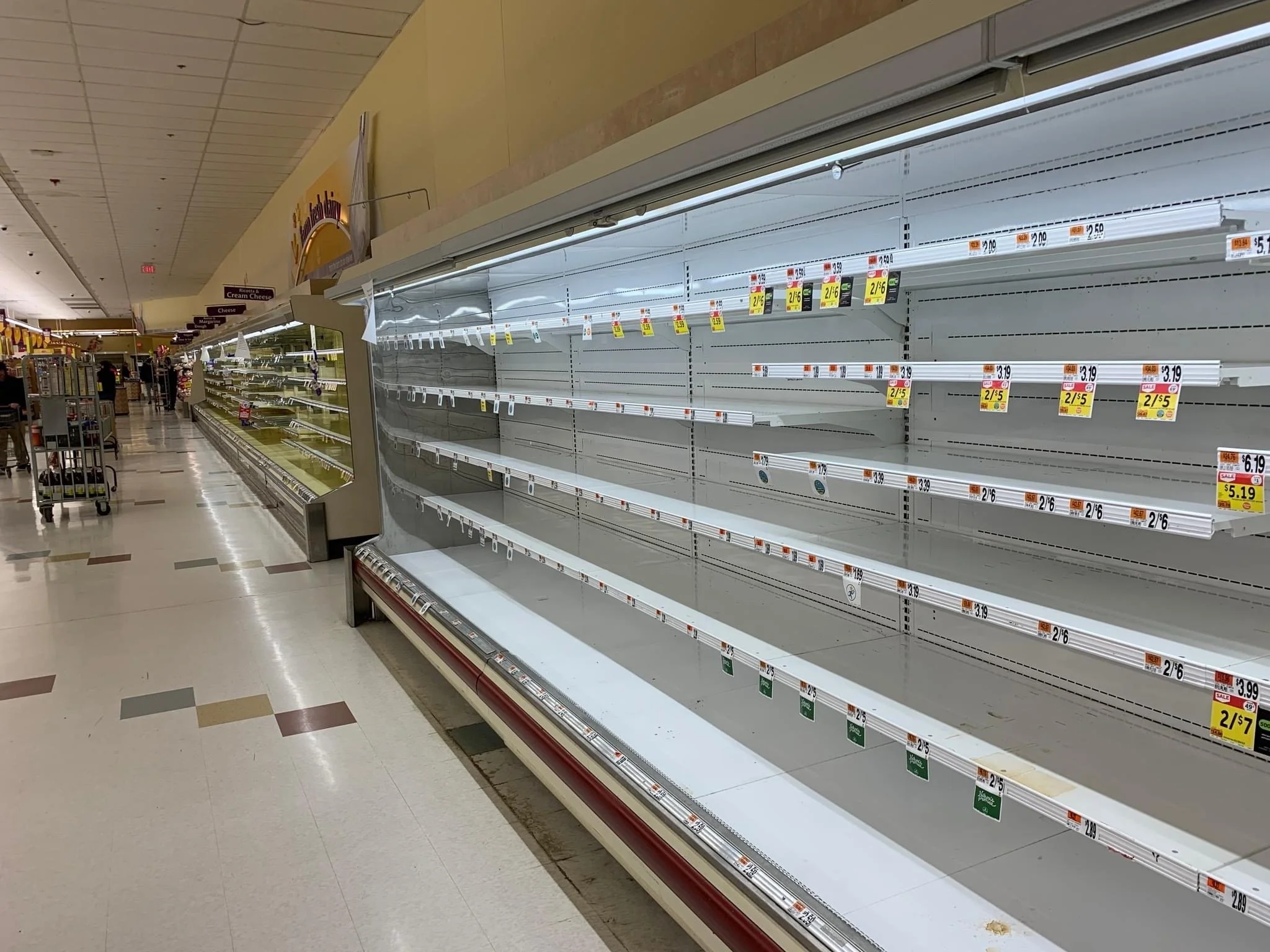Shockwaves
Are we living in some cosmic meme like the chess players in The Adventures of Buckaroo Banzai Across the 8th Dimension? First, a global pandemic chest-thumps at the speed it has spread across the Earth and then a volcano in Tonga says, “Hold my beer.”
Weather stations around the world recorded the increased atmospheric pressure within hours of an explosion that was 500 times more powerful the worst nuclear weapon ever used by humans. Puny humans.
While we can’t reliably predict the future, existence as we know it follows a certain path of effect. A day, a season, gestation, decomposition, to name a few. As humans, we’ve come to take so much for granted, especially our food system. For many, unfettered access to food is as much a given as the sun rising each day…until it isn’t.
Just like the expected tsunami along western coasts, the food system is experiencing shockwaves from COVID19, some locales worse than others.
Everywhere I turn there’s woes about supply chain issues. It’s become like an obnoxious car alarm that continues to shriek. Oh please, will someone just press the damn button and turn it off! That’s easy to say until it’s your car’s alarm and it’s being stolen. Folks tend to ignore what doesn’t directly impact them. That attitude has been pervasive when it comes to the food system.
There have been warning about supply chain gridlock and food shortages since March 2020. I can vividly recall getting a text from a fellow vendor asking if they thought anyone would show up to market given the impending lockdowns. I was sitting in a shopping center parking lot waiting for my Target curbside pickup, something I’d been doing prior to the pandemic in an effort to save time. It was my annual stock-up trip for things like paper goods, cleaning supplies, and household staples. A Thursday afternoon in March looked more like Black Friday with nary a parking spot to be had. Idling vehicles lined up in the fire lane. Shopping carts were stacked. Take as much as you possibly can, was my response to my fellow farmer. The girl who brought my order to the van apologized for the delay because people kept trying to swipe the toilet paper and Clorox wipes out of my order as she wheeled it through the store.
As soon as the weatherman says, snowstorm everyone runs for bread, milk, and toilet paper so much, it empties the isles of grocery stores within hours for an event that will only last for days, a week to dig out from the big ones.
This is how we’ve treated the impacts on our food supply over the last few years, taking for granted the overall stability in our access to what we want.
For weeks there have been reports of food shortages in major grocery store chains citing not enough workers, trucking issues, COVID outbreaks, and every excuse that would stick to the wall. Images showed up in social media feeds and were reported by major news organizations. Could these images be legit or is it click bait, I wondered.
Maybe it’s because I make my living from the food system that I pay close attention to what amounts to the tsunami warnings many have been ignoring as much as they did over a new novel virus were two years ago with an I’ll believe it when I see it attitude.
Well, I’ve seen it.
Last week when I popped into the local independently-owned grocery store to pick up a few things I noticed several cars with Maryland license plates. It was easy to figure out who the out-of-staters were. Their carts were piled high and they were wearing masks. The meat case was more picked over than usual, the frozen food cases had gaping holes between less appealing items, and I’d never seen the produce department so sparse. The item limits per customer signs that had been removed months ago went back up; only two 4-packs of toilet paper per customer.
Knowing that temperatures would hover below freezing for all of Sunday market I was tempted to pack light, but the scene from the local store earlier in the week nagged at the back of my mind. Afterall, there had been winter storm predictions. Was I being paranoid? Would customers be buying food for the storm or for storing? I’d see for myself when I made my normal pit stop at a large grocery chain just after exiting the freeway.
Just like the images online and in the news most of the perishables were absent. Shoppers stood dumbstruck as they surveyed the shelves while contemplating their next move. Oh boy, there’s going to be a tidal wave today, I thought as got in the van for the final few miles to market.
At market, the crowds looked more like it was a 70 degree day a weekend prior to a major holiday. Shoppers crowded the isles, stood in lines stamping their feet to stay warm, and clutching baskets and bags full of what they could not get at their local heated indoor grocery store. There were lots of new customers, not just those opting for the farmers market instead of a grocery store, but people who had never shopped at a farmers market before, ones who knew absolutely nothing about seasonality. One shopper asked for peaches and when handed a jar replied, No, I want fresh ones.
There are many reasons why consumers patronize farmers markets—access to fresh, local foods, support for regional agriculture, buy-in on eco-friendly farming practices, but supply chain security—that’s the latest and rapidly becoming the most critical of all. In many cases, your farmers are the employees, the trucker, and the clerk all rolled into one. Yes, many of us struggle with labor, transportation, distribution, but we still manage to get to market. So get ready for a new influx of market customers in the coming weeks, if not months (we love new customers!) while the commercial supply chain restocks the grocery shelves.

